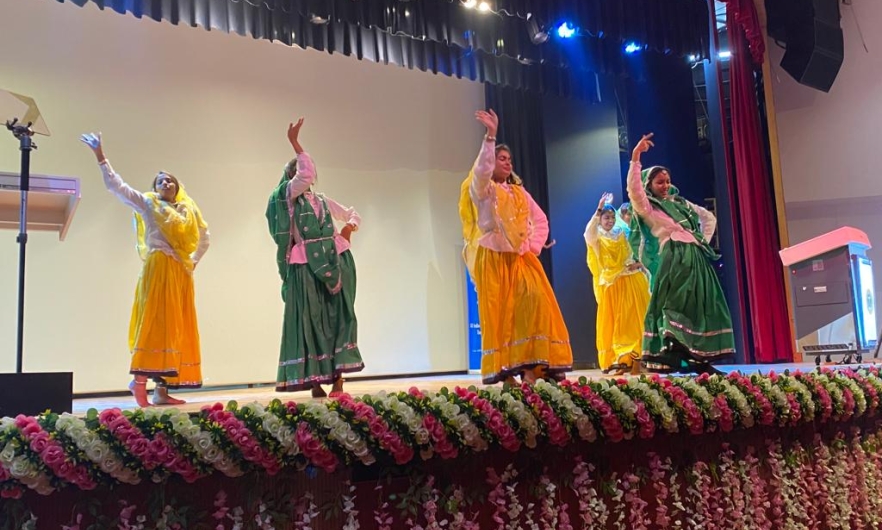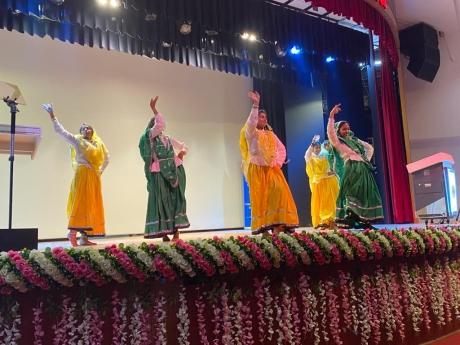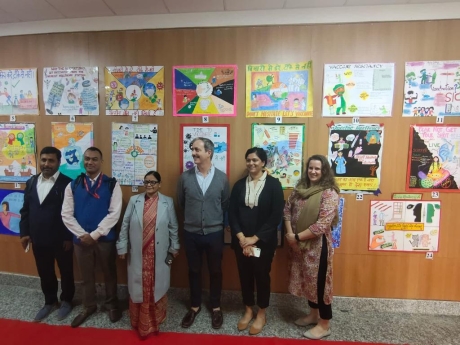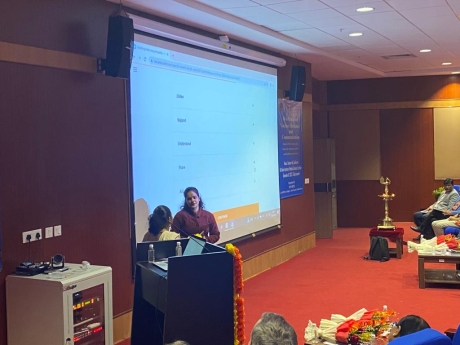IVAC’s Vaccine Hesitancy Training Course Has a Successful Test Run in Uttar Pradesh, India

AIIMS Gorakhpur students welcome IVAC with a colorful dance performance and dinner
It is well-known that vaccines save lives, but their effectiveness continues to be undermined by rampant vaccine misinformation. Healthcare workers have voiced that they are not equipped with the right information or preparation to combat this often polarizing and sensitive topic. To address this need, IVAC researchers recently developed a training course aimed toward healthcare workers with a grant from the Sabin Vaccine Institute. Healthcare workers can take the course either in person or asynchronously online. The course utilizes a highly interactive platform and contains modules covering topics such as evidence-based communication approaches, best practices for debunking misinformation, and vaccine and immunology basics.
In December 2022, IVAC’s Dr. Rupali Limaye, PhD, had the opportunity to test-drive the training course at the All India Insitute of Medical Sciences, Gorakhpur, in Uttar Pradesh, India, thanks to connections from IVAC’s Dr. Brian Wahl and JHU Bloomberg’s Dr. Sara Bennett. Dr. Limaye received a very warm welcome from AIIMS Gorakhpur faculty, staff, and students; the training course was followed by a colorful dance performance, a scrumptious dinner, and student poster presentations on the challenges of vaccine hesitancy.

AIIMS Gorakhpur students welcome IVAC with a colorful dance performance and dinner
The training course was attended by a cadre of medical students, medical faculty, government healthcare workers, and nursing students, and the feedback was excellent: students enjoyed the interactive case studies and the other tools the course provided. “We got some great feedback from students – they noted that the training was really fun and that they really liked the training,” Dr. Limaye said. “It was really great to hear that there is a real need to help health workers deal with vaccine misinformation.” Dr. Wahl, who was also in attendance, noted that “the content really resonated with participants, both from the local health administration as well as the AIIMS Gorakhpur faculty. During the interactive sessions, they were able to quickly apply the concepts to real-world challenges they’ve faced regarding misinformation in health.”
The course was initially designed in English but can be translated into Hindi and other regional languages for the future. “The goal is to have the ability to tailor this,” Dr. Limaye emphasized, stating that the case studies can also be tailored to be more culturally and regionally relevant. In the near future, AIIMS Gorakhpur’s Executive Director, Dr. Surekha Kishore, plans to incorporate the training into the institution’s curriculum.

IVAC’s Dr. Brian Wahl, Dr. Rupali Limaye, and Molly Sauer pose with AIIMS Gorakhpur leadership, including Executive Director Dr. Surekha Kishore.

Kicking off the workshop!
Related Resources:
- Coursera Course: COVID Vaccine Ambassador Training: How to Talk to Parents
- Academic Pediatrics: Communicating With Vaccine-Hesitant Parents: A Narrative Review


